4TH GRADE


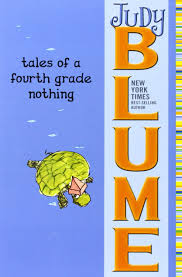
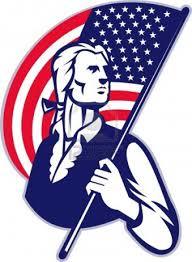
5TH GRADE


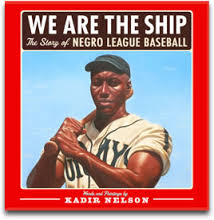

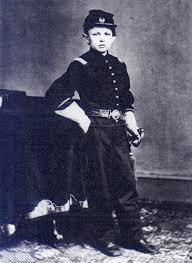
6TH GRADE


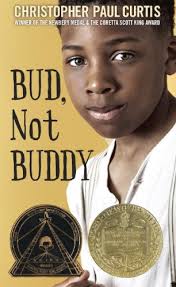
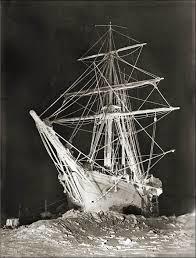
4 - 6 READING UNITS
4TH GRADE
TALES OF THE HEART
This unit explores the heart through different lenses. The students begin this unit learning about theme, and read “Tales of a Fourth Grade Nothing” that intertwines many themes of family and friendship. Love That Dog by Sharon Creech is written as a series of free-verse poems from the main character’s point of view. Classic poetry that is referenced throughout the story is included in the back of the novel and is also read and analyzed in this module. Last, students will read a short story, “Slower Than the Rest,” from the book Every Living Thing by Cynthia Rylant. This is a beautiful story that illustrates what it means to have great heart, as seen through the thoughts and actions of a little boy who loves his pet turtle.
EXTREME SETTINGS
In this unit, students will learn about the challenges presented by extreme environments. Students will read Hatchet by Gary Paulsen, which details the struggles of Brian Robeson, a young boy who is trying to survive on his own in the Canadian wilderness as the sole survivor of a plane crash. Along with the reading of Hatchet, students will delve into the study of informational texts, short stories, poems, and artwork. While reading the texts, students will examine the characteristics of a setting and analyze what makes certain characteristics challenging for survival. Students will also analyze the effect a setting has on plot and character development. Students will surmise the personality traits necessary for a character to survive in a challenging setting.
AMERICAN REVOLUTION
In this unit students learn about the events leading up to and during the American Revolution through poetry, nonfiction text and famous paintings. While exploring these events students will learn how to analyze points of view as well as pull important facts from the text with the purpose of comparing and contrasting. The unit will conclude with a historical fiction text which allows the students to discover how an author develops personal traits in a character, compare first-person and second person accounts, and write opinion pieces supporting a point of view with reasons and textual information.
5TH GRADE
PLAYING WITH WORDS
As students transition from elementary to middle school, they will be called upon to read richer and more challenging works of literature. This module, the first for fifth grade, will provide them with skills that will help them understand such works. Students will study poems, classic comedy routines, and prose works in which authors use words in creative and playful ways. They will learn about homophones and homographs, personification, parts of speech, figures of speech and figurative language, idioms and adages, neologisms and nonsense words, similes, and onomatopoeia. They will puzzle out nonsense poetry like Lewis Carroll’s “Jabberwocky” and join Milo and Tock, the heroes of The Phantom Tollbooth, as they travel to Dictionopolis and the Word Marketplace and go on a quest to rescue the princesses, Rhyme and Reason.
RENAISSANCE THINKING
“All the world’s a stage, And all the men and women merely players; They have their exits and their entrances, And one man in his time plays many parts,” —Jacques, As You Like It
The historical fiction novel for this module, The Shakespeare Stealer, takes a quotation from As You Like It and asks, “If all the world’s a stage, how do we prepare to play our parts?”
LEVELING THE PLAYING FIELD
Sport has the power to change the world…It has the power to inspire. It has the power to unite people in a way that little else does. It speaks to youth in a language they understand. Sport can create hope where once there was only despair. It is more powerful than government in breaking down racial barriers. —Nelson Mandela, first Laureus World Sports Awards
This module explores the power that sports and individual athletes have to “change the world,” as Nelson Mandela famously said, to help tear down social barriers, and to strengthen individuals and communities. It challenges students to think about the capacity of individual athletes and teams to break social barriers and teachers them to mine the texts for evidence that supports these ideas.
AMERICA IN CONFLICT
What does war promise for different individuals? How does war actually deliver on those promises? How can war simultaneously promise glory and redemption for some, but deliver death and desolation for others? Students examine these questions in Module 4 through the eyes of young soldiers who experienced the Civil War and the perspective of a young woman who nearly loses her twin brother to the war. The central text, Richard Peck’s historical novel The River Between Us, tells the story of the Pruitt family whose lives are irrevocably changed by the events of war. Through the eyes of Tilly Pruitt and frst-hand accounts of boy soldiers documented in Jim Murphy’s book, The Boys’ War, students learn about this transformative period of American history.
6TH GRADE
GROWING UP
With its focus on growing up, this module encourages Grade 6 students to think rigorously and philosophically about a process they are experiencing in their won lives. It requires the development of self-knowledge: the cultivation of an ability to reflect upon and respond effectively to a new, and often difficult, circumstances. As students prepare to become mature individuals, this study supports their own development as insightful individuals and ethical members of society who are empathetic to the experiences of others.
FINDING HOME
In order to emphasize the complexity of immigration to America, the module examines it as an experience of hope and opportunity as well as one of alienation and discrimination. Students learn the ways immigrant children hold onto and let go of their previous identities as they adapt to American society. Ultimately, students will explore how immigrants find a sense of belonging in a new country.
THE HERO'S JOURNEY
In Module 4 students read a contemporary retelling of Homer’s The Odyssey. This ancient epic offers more than a time-tested thrill—it affords students access to contemporary cultural vocabulary. Archetypes are necessarily timeless, and the cycle and pattern of the hero’s journey, though it is all presented as the stuff of old, imagined myth, offers students a relevant and deeply human model of transformation in the midst of struggle.
FOLLOW THE LEADER
During Module 5 students read the riveting nonfiction text, Shipwreck at the Bottom of the World: The Extraordinary True Story of Shackleton and the Endurance. Shipwrecked in the uninhabitable Antarctic, Sir Ernest Shackleton acts as a remarkable leader, confronting a relentlessly hostile environment that threatens his crew’s physical, mental, and emotional survival. Shackleton’s against-all-odds story affords students an entrance into research about leadership. After investigating aspects of Shackleton’s life, students research other inspirational people who developed into leaders in response to personal peril and/or daunting challenges.
